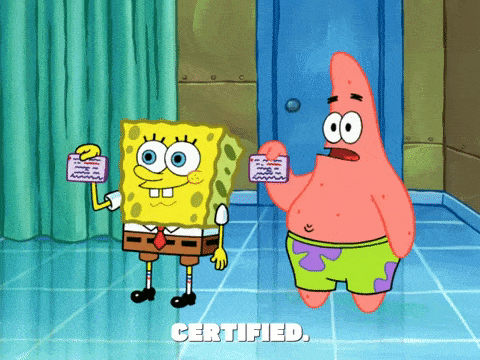Quality Over Quantity│Boost Customer Loyalty With Quality Assurance Training

Have you thought about why you buy from the same companies over and over again? Most likely, it has nothing to do with quality assurance training. But indirectly, it does.
Build a quality-focused culture with a sound operational communication strategy. Download our playbook, “The Ultimate Operations Management Strategy for Frontline Workforces,” to learn how.
In 2019, the top reason for customer loyalty was product quality.
Companies that excel in managing their quality process have a strong competitive advantage over their peers. That said, not every company has a handle on their quality management system.
Our advice? Start with quality assurance training.
What Is Quality Assurance?

Quality assurance is commonly used alongside quality control. Yet, the two can be very different in nature.
According to the American Society of Quality (ASQ), quality assurance is:
All the planned and systematic activities implemented within the quality system that can be demonstrated to provide confidence that a product or service will fulfill requirements for quality.”
And, quality control is:
The operational techniques and activities used to fulfill requirements for quality.”
Both quality assurance and quality control roll into an overarching quality management system.
Ultimately, quality assurance is delivering on your promise to customers.
Included in that promise is:
- Creating and delivering sound products or services that meet quality guidelines
- Continuously improving processes to create better experiences
- Establishing a quality-conscious employee culture where everyone can make a difference
How Quality Assurance Impacts Operational Excellence
Quality assurance should be part of your company’s operational excellence strategy, which focuses on:
- Engaging employees
- Controlling costs
- Improving productivity
- Surpassing market competitors
The two concepts intersect at company culture. Companies that have achieved operational excellence also have solid company cultures that value process improvement, employee engagement, and the customer experience.
What Is Quality Assurance in Education and Training?

Implementing a sound quality assurance process doesn’t happen overnight. Let’s take a look at what is quality assurance in education and training and why it’s important.
Topics Covered in Quality Assurance Training Courses
Quality assurance training is formal education in establishing and improving processes that ensure the final product or service meets set quality standards.
Quality assurance training courses can help employees better understand quality assurance activities, such as:
- Defining processes
- Executing a quality audit
- Developing tools, like process standards and checklists
Some quality assurance course topics are industry specific. For example:
- The Environmental Protection Agency (EPA) offers training on proper laboratory practices, which may not be relatable for a manufacturing company
- The American Society of Civil Engineers (ASCE) gives quality management training specific to construction projects
Additionally, most quality assurance training courses are packaged into broader training programs covering the entire quality management system.
Why Quality Assurance Training Is Important
Customer loyalty is a critical reason why quality assurance matters. Producing quality products keeps customers coming back, which positively impacts business performance.
But what else?
Companies that prioritize solid quality assurance practices benefit from:
- Establishing a brand of trust and integrity with their customers
- Championing a value-driven mission that employees are proud to support
- Operating more efficiently which saves time, money, and essential resources
- Building a company culture that prioritizes quality products, meaningful customer relationships, and continuous improvement
- Having an educated and engaged employee base
Good quality assurance practices can also prevent situations like product recalls, which can damage public trust in your brand.
Getting Started With Quality Assurance Training

Whether you’re creating quality assurance (QA) training from scratch or looking for an external certification course, here are some tips to get you started.
Who Should Take QA Training?
QA training can be valuable for anyone that wants to improve the customer experience. That said, certain employee groups should be a high priority for this training topic because they directly impact the quality management process.
- Operations managers
- Frontline/customer-facing employees
- Sales managers
- Product developers
In reality, any employee that touches the product in any capacity should have a firm understanding of quality assurance principles.
How To Get A Quality Assurance Certification

Quality assurance certification programs generally come in two forms:
- Individual certification: These certification programs equip employees with quality assurance principles, strategies, and tools to lead quality management for their organization
- Organization certification: These certifications are awarded to companies execute quality management systems in alignment with particular quality guidelines
Individual Certification
There are many QA certification programs, but two of the most common are Total Quality Management (TQM) and ASQ.
TQM is a self-paced QA certification program designed for individuals that want to learn quality management concepts they can transfer into their current or future positions.
Topics included in the QA certification include:
- TQM Pyramid
- Product Quality
- Analytic Methods
- TQM System Model
- ISO 9000
- Kaizen
- Costs of Quality
ASQ offers both general QA training programs and QA certification. According to ASQ, certifications are designed to help employees advance their careers, improve their organization, and prepare them to be quality-focused professionals.
ASQ provides over 18 quality management certifications, including:
- Certified Food Safety and Quality Auditor
- Manager of Quality / Organizational Excellence
- Certified Quality Process Analyst
- Certified Quality Inspector
- Certified Software Quality Engineer
- Certified Quality Auditor
Employees can apply for certification and take the exam on their assigned test date.
Organizational Certification
Want to go one step further? Get the internationally recognized quality management certification for the company.
International Organization for Standardization (ISO) sets international standards for:
- Environmental Management
- Energy Management
- Food Safety
- Health and Safety
- IT Security
- Quality Management
Companies can be ISO 9001 certified. ISO 9001 is the standard that sets the criteria for establishing quality management systems.
“Using ISO 9001 helps ensure that customers get consistent, good-quality products and services, which in turn brings many business benefits.”
The ISO 9001 standards are based on seven quality management principles:
- Customer Focus: Provides guidelines on meeting customer requirements and exceeding their expectations
- Leadership: Focuses on creating a unified mission for achieving quality objectives
- Engagement of People: Aims to involve employees across all organizational levels in the process of achieving set quality objectives
- Process Approach: Drives process management and a better understanding of how all activities work together under one system
- Improvement: Emphasizes the importance of continuous improvement efforts to benefit the overall quality
- Evidence-based Decision Making: Drives confidence in decision making by focusing on data analysis and evaluation
- Relationship Management: Focuses on managing the critical relationships that drive success – such as suppliers, customers, partners, and employees
While ISO creates international standards for quality management systems, it does not issue certifications.
To get ISO 9001 certified, organizations should:
- Adopt the ISO 9001 principles
- Create and activate a quality management system in alignment with those ISO 9001 principles
Pro tip: Getting ISO 9001 certified is no small feat. Factor in time for planning, preparation, and internal auditing
- Engage an external certification body to audit your quality management system
- Receive your certification and remember to recertify every three years to stay on top of the international standard
Depending on the size of the business, it generally takes anywhere between 6-18 months to go through the full certification process.
Try These QA Training Best Practices and Strategies
Training and development are an essential piece of the employee experience. 40% of employees leave their jobs after the first year if they don’t receive adequate training.
So, companies want to make sure they are putting thought behind their training courses. Here are some best practices when implementing QA training in your organization.
Educate Employees on Why QA Training Is Important
Help employees understand why QA training is important by connecting it to the broader company objectives. Employees who aren’t already familiar with the concept of quality assurance will appreciate the insight.
Before going into QA training, employees should know:
- How QA builds stronger customer relationships
- How their role influences quality management
- The overall benefits of formal QA training
- How they will positively impact business performance after the training
Provide QA Training That Works For Employees
Workplace training opportunities should be offered through channels that work best for the employee.
Given COVID-19, many companies are switching to digital, on-demand training programs.
Benefits of digital training programs include:
- Employees do their training at their own pace
- There’s quicker and easier access to training materials
- Courses can be taken from any device in any location
Employee communication apps, like Beekeeper, are great tools to provide employee training programs. Beekeeper integrations give employees access to training courses and materials right on their mobile devices.
Take a look at Beekeeper Marketplace to see what training platforms we partner with.
Prioritize QA Training in Development Plans
Employees that influence any part of the quality management process should include QA training in their development plans. Together, the manager and employee should discuss which training programs will be most impactful.
Additionally, employees that have already received QA training should consider adding a QA certification to their development plans.
Employees in roles that don’t impact the quality management process can also take QA training. The principles and strategies learned in QA training are valuable in other areas of the business as well.
Ingrain QA Principles Across Every Level
QA training builds skills in:
- Improving processes
- Identifying areas of improvement
- Creating a quality-focused company culture
- Building stronger customers experiences
These are skills that should be ingrained across every employee level. From the frontline to the C-Suite, everyone should know how quality impacts customer experiences. And customer experiences impact business performance.
Improve quality management and increase operational efficiency with a digital workplace. Download our playbook, “The Ultimate Operations Management Strategy for Frontline Workforces,” to get started!
Get the Playbook

About the author
Beekeeper
We make frontline lives easier, work safer, and teams more connected so businesses can reach new heights. At Beekeeper, we’re dedicated to making frontline lives easier by connecting workers with the tools, support, and information they need to feel valued, do their best work, and drive the business forward.







